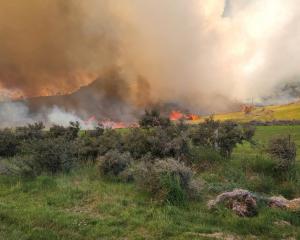
The Selwyn Veterinary Centre at Rolleston has reported a confirmed case of the potentially fatal disease in one of its canine patients.
Veterinarian Yolande Howell said the dog was “not doing well at present.”
The SPCA recently reported that Auckland was experiencing its worst outbreak in 20 years.
Some vet clinics were seeing up to 20 cases a day, while cases had also popped up in Christchurch, Wellington and Northland.
Howell urged pet owners to check with their vets if their dogs were fully vaccinated.
“Puppies should not be taken for walks until fully vaccinated,” Howell said.
“Unfortunately with parvo, the mortality rate is really high.”
On its Facebook page, the centre issued locations of interest the sick dog had visited.
These were the Rolleston Dog Park on February 8, and around the Burnham Military Camp.
An SPCA spokesperson said last week its inspectorate was aware of just one case in Selwyn.
BARK Kennels and Cattery manager Kristy Wood said it was concerning to have a case in the district.
The facility at Rolleston, registered for 240 dogs, would be extra vigilant to ensure clients’ pets were up to date with vaccinations.
The New Zealand Veterinary Association said the highly transmissible viral disease affected the gastrointestinal tract.
Dogs caught it directly by contacting faeces containing the virus, as well as indirectly by coming into contact with contaminated objects such as food and water bowls or footwear.
Early signs of lethargy, lack of appetite and fever typically occurred within five-to-seven days of being exposed, usually progressing quickly to vomiting, diarrhoea and dehydration.
Six-week to six-month-old puppies unvaccinated or incompletely vaccinated were most at risk.













